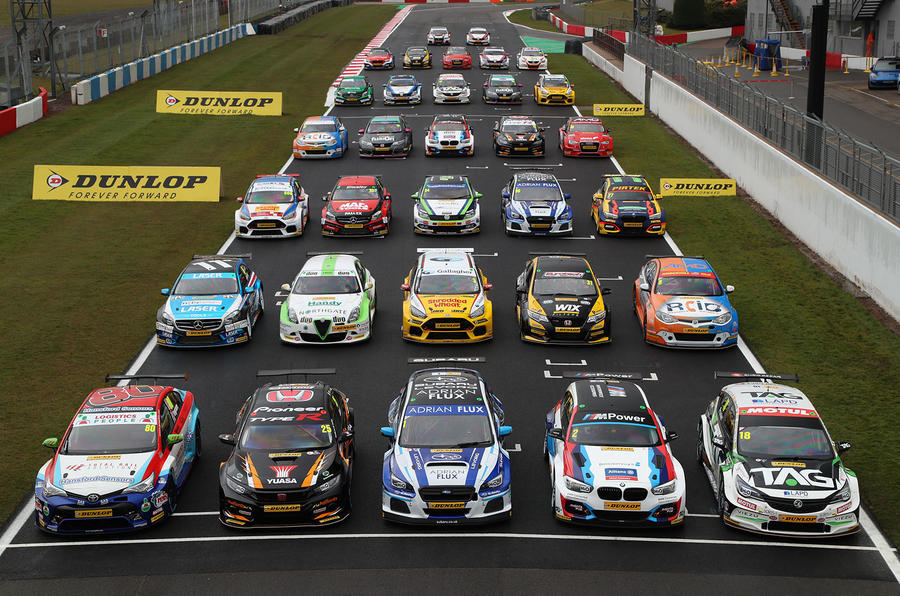The Dunlop MSA British Touring Car Championship (BTCC) has announced that all of competing cars will feature hybrid powertrains from the start of the 2022 season, under rules revisions brought in by the series organiser, TOCA.
The hybrid system will be incorporated into the current cars' powertrains, which means teams will not face the expense of switching to brand new machines.
Testing of the system will begin in 2020, with the hybrid technology likely to be added to some cars currently competing in the series. When the 2022 season gets underway, all of the cars on the grid will have a battery pack allowing a boost of extra power to be used strategically during races.
“By incorporating hybrid it keeps the BTCC absolutely relevant to manufacturers, sponsors and the public… with the added benefit of further enhancing our great racing," said Alan Gow, BTCC series director.
"Drivers will have a given reserve of additional hybrid power to use during each race, which will provide an extra element of racecraft and excitement to the fantastically close and entertaining racing that is the hallmark of the BTCC."
Gow added that keeping the costs of the hybrid system down will be important: “Different to hybrid development within the likes of Formula 1, this certainly shouldn’t – and won’t – be an ‘extreme’ technical exercise, but rather will be one which we will introduce within our NGTC technical regulations relatively seamlessly and very cost-effectively.”
BTCC’s move to hybrids was agreed at a Technical Working Group meeting last week. It’s the latest effort to electrify motorsport, following the success of the Formula E championship, as well as the recent decision for the World Rallycross Championship to switch to electric power from 2020.
The single-make Electric GT series is also gearing up to begin in November, with a fleet of 20 Tesla Model S P100D racers to compete for the title.
Read more:
World Rallycross Championship’s switch to electric cars approved
Race-ready Tesla Model S P100D shown ahead of Electric GT season





Join the debate
Add your comment
Hell no....
Adding hybrid complication to racing had added nothing to the spectacle or emotion of motorsport.
F1 is a joke of cost, noise, grid penalties. It’s taken 4 years to get some form of engine performance equivalency between only two manufacturers.
WEC has one manufacturer left.
It’s an extra cost that adds nothing to the spectacle. People like motor racing for excitement predominantly, don’t forget that. Engineering is also appealing, but when it dominates it has gone too far.
I accept these plans are not F1 or WEC, but apart from a fake power boost during racing, and manufacturer relevance I don’t get it. The racing is good as it is. So last lap, one driver has a power boost and drives past the leader with little effort?
Excellent news, it keeps
Excellent news, it keeps manufacteurs interested and still pleases everyone, purists or not. The WRC will go the same way likely in 2022 aswell.